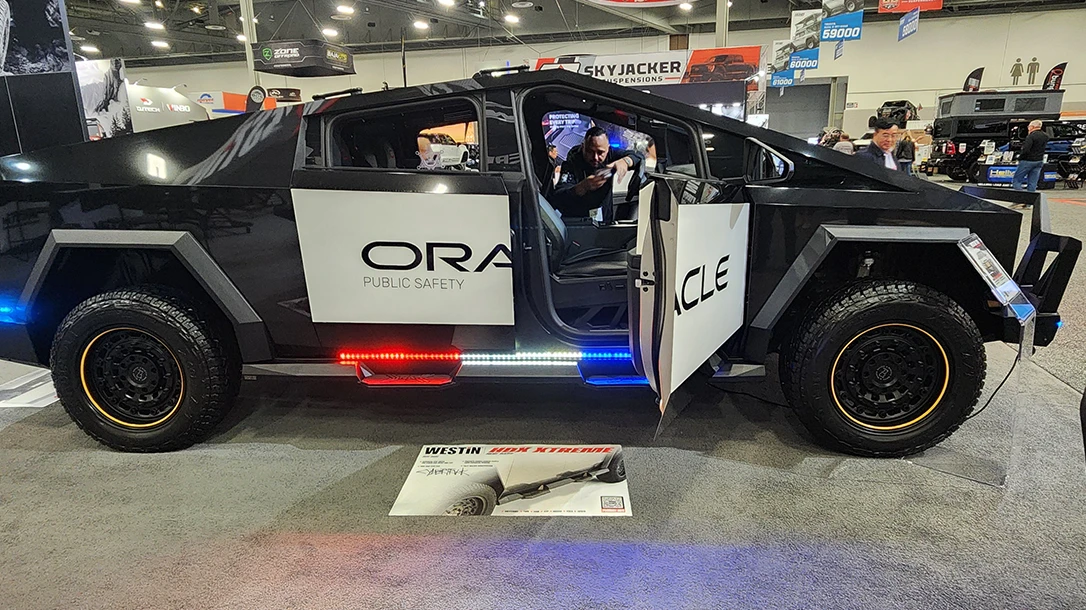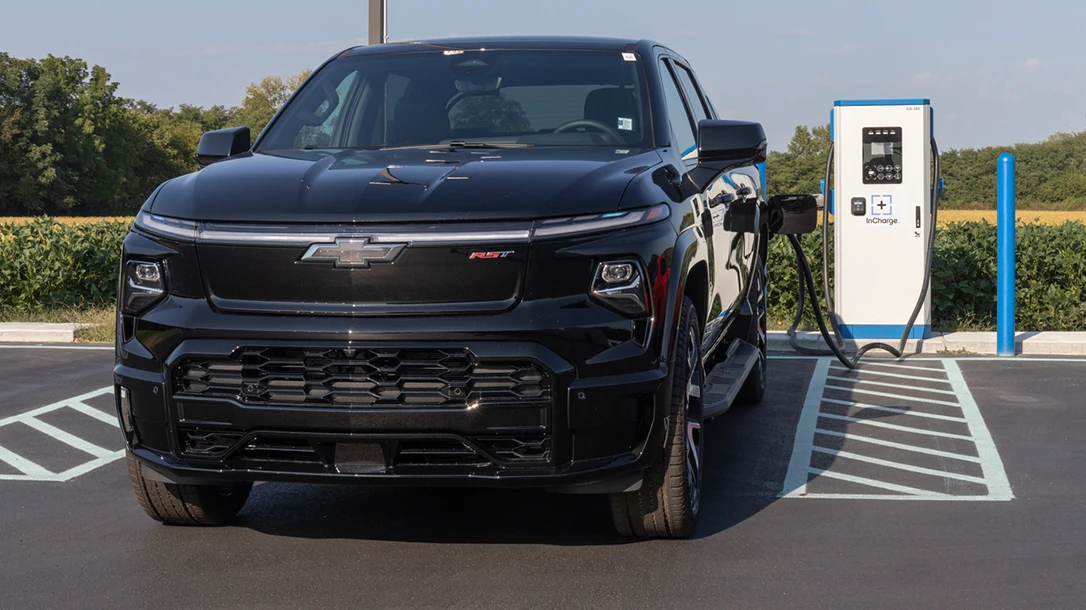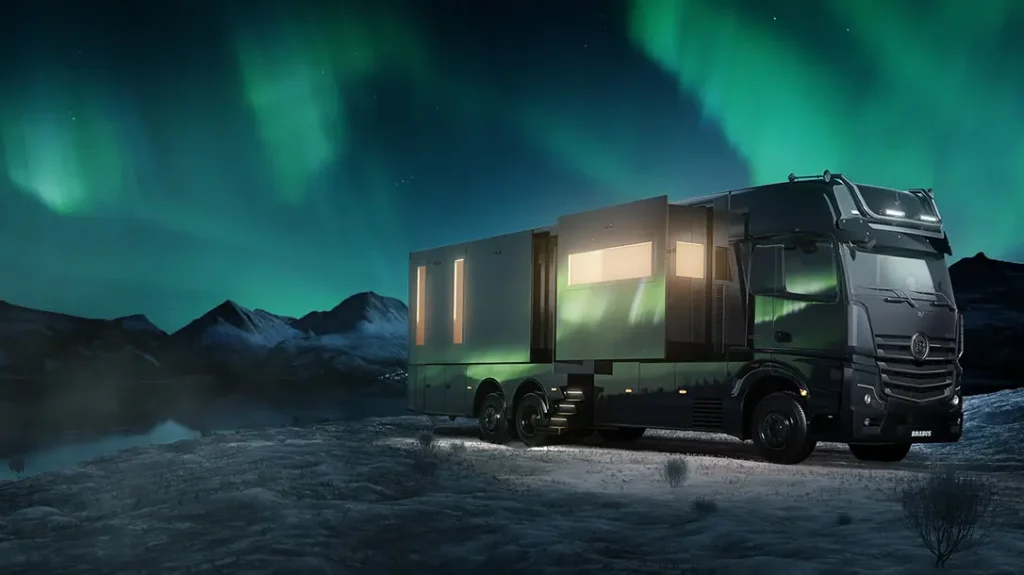Electric trucks and cars are a good option for many U.S. drivers, particularly for personal use and fleet-based operations, due to their lower operating costs, instant high performance, and environmental benefits. Not to mention the total cost of ownership over a vehicle’s lifetime is often lower than for a gas-powered truck. Or so they want you to think: An EV typically has a much higher upfront cost than its gas- or diesel-powered counterparts.

The EV Hype Train
Lower fuel costs are another great selling point for electric vehicles, as they can significantly reduce operating costs thanks to the superior efficiency of electric-drive components. Electric trucks have fewer moving parts than diesel trucks; they require significantly less maintenance, eliminating the need for oil changes, spark plugs, and other upkeep associated with internal combustion engines. Electricity is also typically cheaper per mile than gasoline or diesel, and its price is more stable.
Advertisement — Continue Reading Below
Suppose you’re into that sort of thing. Personally, the smell of pumping gas at the station reminds me of my grandmother’s perfume, fresh-cut grass, or a certain laundry soap; the smell of gasoline in the early morning takes me back. There is something nostalgic about it, like a mix of freedom and bad decisions. It reminds me of past road trips, old trucks, and that feeling of being half-awake but fully alive.
On the other hand, their batteries tend to have a limited lifespan and can be very expensive to replace. Battery production and disposal also have significant environmental impacts.
At least 13 companies use electric vehicles for delivery to reduce their impact on the Earth and cut costs. To name a few, Amazon, DHL, Pepsi, Walmart, UPS, IKEA, etc.
Advertisement — Continue Reading Below
Whether you are on the EV train (no pun intended) or not, here are a few pros and cons, and you can decide for yourself if you are “pro” at saving the environment or if you are getting conned into being virtuous.

Pros of Owning an EV
Driving an EV is basically adulting with a cheat code. You’ll save a ton on “fuel” because electricity costs less than your daily coffee habit. And maintenance? Forget it — no oil changes, no spark plugs, no mysterious “engine thing” your mechanic swears needs replacing.
Advertisement — Continue Reading Below
Plus, the government actually pays you to drive one. Tax credits, rebates — it’s like they’re rewarding you for being responsible. And if that’s not enough, some places let you use the carpool lane solo. Nothing says “winning at life” like flying past traffic while everyone else fumes in gridlock.
In short, EVs are cheaper, cleaner, and make you look like you’ve got it all together — even if you’re still Googling how to cook rice.
Performance and Driving Experience
Advertisement — Continue Reading Below
Smooth and quiet: The electric motor delivers instant torque for quick acceleration and a more peaceful, smoother ride than a traditional gasoline engine.
More efficient: EVs convert a higher percentage of energy into motion compared to gas-powered cars
Virtue signaling because nothing says “I’m eco-conscious” like silently zooming past while your dashboard glows with your saintly glow.
Advertisement — Continue Reading Below
Convenience
Convenient charging: You can charge at home overnight, avoiding trips to the gas station.
Remote pre-conditioning: Many EVs let you warm or cool the cabin before you get in.
Cons of Owning an EV
The main environmental downsides of electric vehicles (EVs) are kind of the industry’s dirty little secret, with an emphasis on dirty. We all love to brag about zero emissions, but not so much about the fact that building those awesome “green machines” involves tearing up half the planet for materials like lithium, cobalt, and nickel. Mining for those isn’t exactly a spa treatment for the Earth. Can we think of water pollution, habitat destruction, and the occasional “sorry, local community, we borrowed all your water.”
Advertisement — Continue Reading Below
Then there’s the battery production, which somehow manages to have a carbon footprint big enough to make a coal plant blush. If your local power grid is still running on fossil fuels, plugging in your EV is basically like giving your gas car a different kind of addiction, but let’s face it, in a society where we love to push addictions as an end that justifies the means, just this time, the oil’s hiding behind an outlet.
But what about when those giant, pricey batteries finally die? What’s that? They don’t just vanish into the recycling fairy’s arms. Improper disposal turns them into e-waste on steroids, piling up faster than you can say “sustainable future.” So while EVs might not belch smoke like an old pickup truck, they’re still leaving their fingerprints all over the planet just in a cooler, more Instagrammable way.
Battery Production Has a High Environmental Cost
Advertisement — Continue Reading Below
Mining lithium, cobalt, and nickel, essential for EV batteries, requires large amounts of water and energy, often leading to ecosystem damage, toxic waste, and child labor in certain regions (e.g., cobalt mining in the Congo).
Producing a single EV battery can emit several tons of CO₂ before the vehicle even hits the road.

Advertisement — Continue Reading Below
Electricity Isn’t Always “Clean.”
EVs are only as green as the power grid that charges them.
In regions where electricity still comes primarily from coal or natural gas, charging an EV can produce emissions comparable to those of driving an efficient gasoline car.
Battery Disposal and Recycling Challenges
Battery recycling infrastructure is still developing. Many used EV batteries end up in storage or landfills because the recycling process is costly and energy-intensive.
Improper disposal can release toxic chemicals into the environment.
Resource Scarcity and Unsustainable Demand
The global shift toward EVs could create new environmental strains — such as deforestation and water depletion — as mining operations expand to meet battery demand.
This moves pollution “upstream,” out of sight, but not out of existence.
Short-Term Emissions May Increase Before They Decrease
Building EVs (huge trucks or SUVs) generates more CO₂ than manufacturing gas-powered cars.
It can take tens of thousands of miles of driving before an EV offsets those initial manufacturing emissions.
Hidden Environmental Costs of Infrastructure
EV charging stations, new power lines, and large-scale battery storage all require additional raw materials and land development.
Urban mining, rare metal extraction, and industrial energy demand can still degrade habitats and contribute to pollution.

Are you Ready to Buy?
In conclusion, the great EV debate feels a bit like arguing over whether pineapple belongs on pizza, and nobody’s changing their mind. Depending on who you ask, electric vehicles are either virtue signaling that you are saving the planet, bankrupting the average driver, or just the latest shiny “thing” we are all supposed to pretend we understand.
Environmentally friendly? Sure, I guess as long as you don’t think too hard about where the electricity comes from or what happens to those giant batteries when they die. Speaking of dying, the cost up front is probably going to cost you in the end, like the old crossroads demon. Sure, if you enjoy math problems that involve tax credits, charging times, and the price of rare earth metals and the lives it takes to mine them.
And if you live in a state like California, you might not even get a say in the matter. It’s less “join the EV revolution” and more “buy one or else.” At this point, it feels like we’re all being nudged toward an electric future, whether we are ready or still clinging lovingly to our gas-guzzlers like they are old friends who understand us.


















